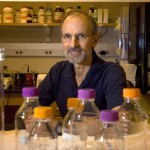 A recent report from The Science Coalition gives numerous examples of how federally funded research at universities has led to innovation, new companies, and the creation of jobs. The Sparking Economic Growth report lists the university research origins of 100 companies, including Google, Genentech, Cisco Systems and iRobot. Four Emory startup companies were highlighted among the success stories: GeoVax, Inc., Pharmasset, Inc., Syntermed, Inc., and Triangle Pharmaceuticals, which was later acquired by Gilead Sciences in California.
A recent report from The Science Coalition gives numerous examples of how federally funded research at universities has led to innovation, new companies, and the creation of jobs. The Sparking Economic Growth report lists the university research origins of 100 companies, including Google, Genentech, Cisco Systems and iRobot. Four Emory startup companies were highlighted among the success stories: GeoVax, Inc., Pharmasset, Inc., Syntermed, Inc., and Triangle Pharmaceuticals, which was later acquired by Gilead Sciences in California.
Emory President James Wagner wrote a followup editorial in the Atlanta Business Chronicle about the importance of scientific research in Georgia’s universities to the health of our economy.
“Atlanta can be proud that Emory University is a shining example in this report, with four highlighted successful companies that were launched because federally funded research resulted in innovative and life-saving discoveries. These four success stories only scratch the surface as examples of the more than 150 companies and the resulting 5,500 jobs created in Georgia from discoveries at its research universities.
“Since the 1990s, Emory has turned external research funding, the majority from the federal government, into more than $775 million in licensing revenues from drugs, diagnostics, devices and consumer products. This is money infused into the state’s economy that helps create jobs and educational opportunities, saves lives, and leads to more research discoveries for the benefit of all. Emory has launched 47 start-up companies and licensed 27 drugs, medical devices and diagnostics already in the marketplace and 12 more currently in human trials.”
GeoVax, Inc., is developing and testing a promising AIDS vaccine based on research at the Emory Vaccine Center and Yerkes National Primate Research Center. Gilead Sciences (from Triangle Pharmaceuticals) and Pharmasset, Inc. are creating AIDS drugs that are taken by over 90 percent of HIV-infected patients in the United States and many more around the world. Syntermed, Inc. distributes imaging software developed at Emory that helps in the diagnosis of more than four million heart disease patients every year.






